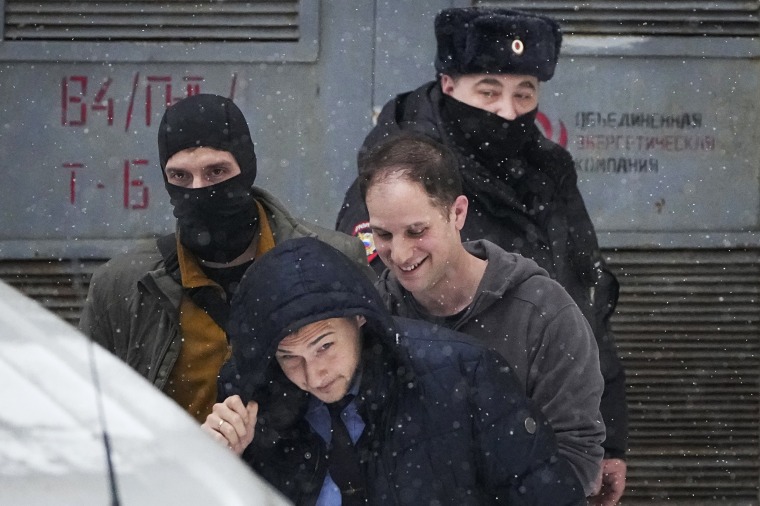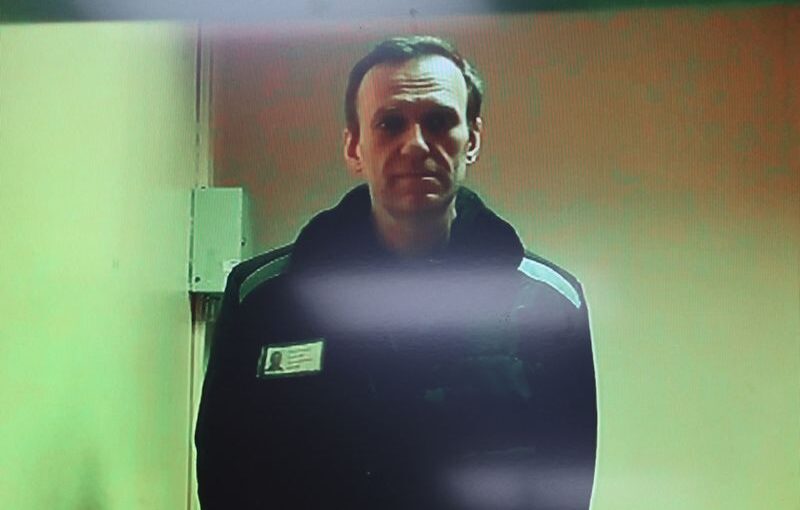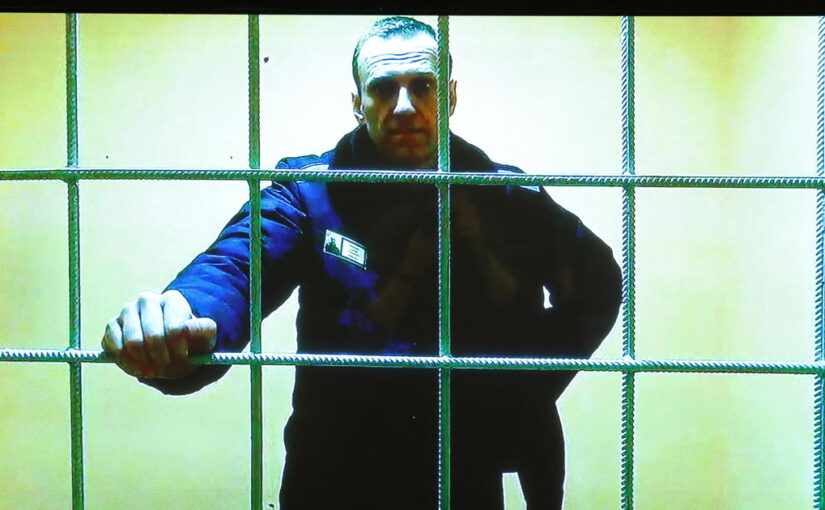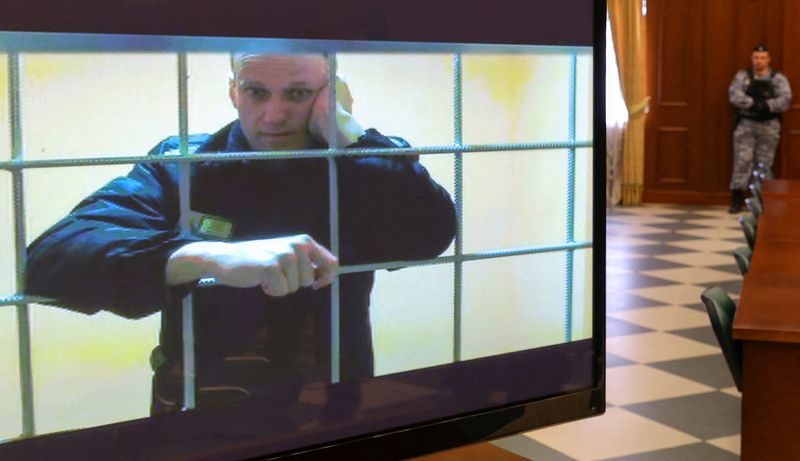Even as a child, Evan Gershkovich seemed destined to be a reporter. He was always curious, liked a good story, and was deeply interested in Russia, the country his parents had emigrated from.
He was there, as Russia instituted the biggest crackdown on the free press in decades — one that would ensnare him, left awaiting trial on espionage charges that many in the West decry as punishment for doing his job. NBC News spoke to his family and some of his closest friends as his detention reached a year on Friday.
Gershkovich, 32, was arrested last March while reporting for The Wall Street Journal in the city of Yekaterinburg, in the Ural Mountains. The Kremlin said he was caught “red-handed” receiving “secret information,” but to this day, Russia has not provided evidence to support the accusation. Gershkovich and the Journal deny all charges against him.
He is being kept in Moscow’s notorious Lefortovo prison, known for its harsh conditions. His multiple appeals have been rejected in court, and his latest appearance this week saw his pre-trial detention extended again, until at least June 30. The Kremlin said Thursday it does not have information about when his trial could begin.
Gershkovich often smiles and appears in good spirits during his court appearances, but a year in custody, without much in the way of a promising resolution, is weighing heavily on his family and friends.
“It has been hard,” his father, Mikhail, told NBC News. “He spent all four seasons there, he spent his birthday and all the holidays. We want him home as soon as possible.”
Gershkovich’s parents left the Soviet Union for the U.S. during the Cold War. He and his sister, Danielle, grew up speaking Russian at home, and the family calls him “Vanya,” the diminutive for his Russian name, Ivan.
Gershkovich’s mother, Ella Milman, said his curiosity and interest in Russia drove his decision to move there in 2017 to work as a journalist, an opportunity the family was excited about.
Everything changed when Russia invaded Ukraine, and Gershkovich, like many other foreign journalists wary of new laws criminalizing criticism of the Russian army, relocated abroad, though he regularly went back to Russia to report.
Last March, Milman said she got a call from Evan, saying he needed to finish a story and would go back to London, where he was based, the following week. The next call she received about Evan was from a Journal editor, informing her that Evan had not checked in from his assignment.
Then, the news came out: a foreign reporter was arrested in Russia. “For me, it was a total shock,” Milman said.
“My heart dropped into my stomach,” Evan’s older sister, Danielle, said of the moment she learned of his arrest. She said she is very close to her brother, who has always been the responsible one growing up, but can often be a “goofball.”
They now write each other letters, she said, and he often tells her he is worried about how the family is coping, but also makes her laugh. “He is so strong,” she added. “He has not lost his spirit.”
The Biden administration considers Gershkovich “wrongfully detained” and has been actively trying to get him out. Moscow signaled early on that it may be willing to discuss a potential swap once there is a verdict in place. But in December, the State Department said Russia rejected “a new and significant proposal” to secure his release.
His arrest unnerved international news organizations still operating in Russia. Since his arrest, another American-Russian journalist, Alsu Kurmasheva, has also been detained, along with several other U.S. nationals, prompting accusations that Russian President Vladimir Putin has been building a reserve of Americans to swap for Russian nationals jailed abroad.
He hinted in an interview last month that Gershkovich could be swapped for a Russian hitman jailed in Germany, and a deal that sources told NBC News was in the works to free opposition leader Alexei Navalny before his death in prison last month, would have also involved Gershkovich.
But for now, Gershkovich remains behind bars, and his family and friends await any news.
Pjotr Sauer, a friend of Gershkovich and a Russia reporter for The Guardian, said he writes to Evan every week, and nearly every letter is an update on Arsenal — the English team they both support fervently, which is currently enjoying its best period since Evan was a soccer-mad teen in New Jersey. He does a lot of reading and writing in jail, Sauer told NBC News, but is confined to a tiny cell, with just one hour a day to walk around. Still, his sense of humor and optimism come through in his letters, he said.
“It’s giving me a lot of strength to see that he is doing okay, given the conditions he is in,” he added. “He’s not broken, not mentally, not physically.”

What set Gershkovich apart as a foreign journalist was his deep understanding of Russia and his desire to figure out the ins and outs of what’s happening in the country, said Masha Barzunova, a friend and independent Russian journalist. Vanya, as she calls him, knew the risks, but thought that it was important to continue reporting there.
Journalists and friends celebrated that dedication to his work this week with a 24-hour read-a-thon live streamed from the Wall Street Journal that brought home how deeply reported his stories were, particularly his coverage of the conflicting emotions of Russian draftees fighting in Ukraine, and the views of many different voices of Russians about the war on the home front.
His arrest, which Borzunova said she considers a hostage taking, became one of many watershed moments indicative of changes inside Russia in the last two years. “He is holding up well but it can’t continue this long,” she said.
Since his arrest, Gershkovich’s parents have gone to see him in Russia twice — once in jail and once in court through a glass box, with guards monitoring the visit both times. Otherwise, they communicate with Evan in letters and through his Russian lawyers. They know his friends deliver fresh fruit and vegetables to him in prison, and he keeps in good physical health.
They are grateful for the Biden administration’s support, but say it’s been too long and they are worried about his mental health after a year in custody.
“Evan is not here,” Milman said. “We knew that it was going to be a marathon, but still had hopes that it will be sooner.”
For now, the family is choosing to remain optimistic and put their faith in the U.S. government, she said, because “pessimism will kill all hope.”
Asked what she would say to Putin if she had a chance, Evan’s sister, Danielle, said she would try to relay the “human cost” of his brother’s plight. “We miss him so fiercely,” she said. “We don’t want him to have one more day of his freedom taken from him. And we want him home.”


